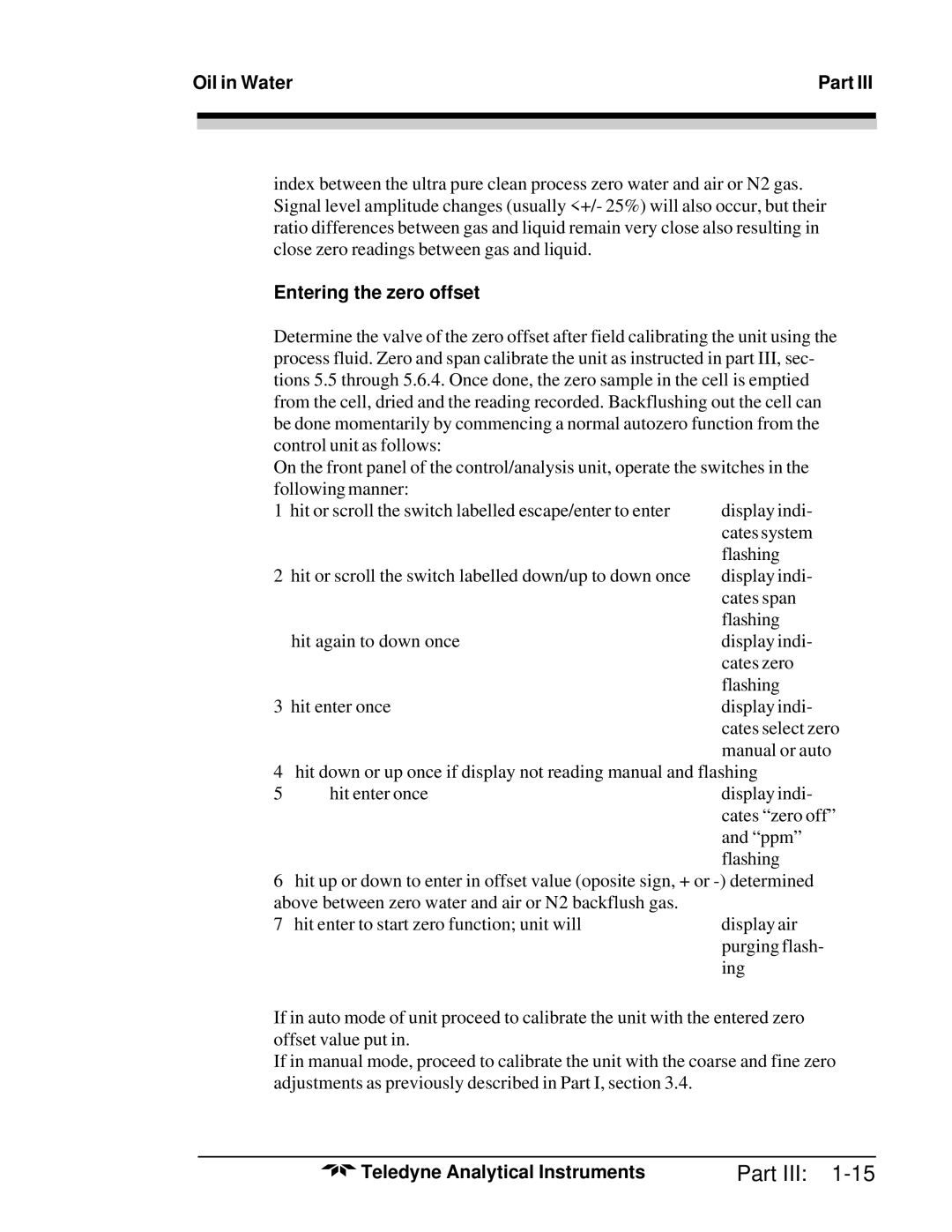Oil in Water | Part III | |
|
|
|
|
|
|
|
|
|
index between the ultra pure clean process zero water and air or N2 gas. Signal level amplitude changes (usually <+/- 25%) will also occur, but their ratio differences between gas and liquid remain very close also resulting in close zero readings between gas and liquid.
Entering the zero offset
Determine the valve of the zero offset after field calibrating the unit using the process fluid. Zero and span calibrate the unit as instructed in part III, sec- tions 5.5 through 5.6.4. Once done, the zero sample in the cell is emptied from the cell, dried and the reading recorded. Backflushing out the cell can be done momentarily by commencing a normal autozero function from the control unit as follows:
On the front panel of the control/analysis unit, operate the switches in the following manner:
1 | hit or scroll the switch labelled escape/enter to enter | display indi- |
|
| cates system |
|
| flashing |
2 | hit or scroll the switch labelled down/up to down once | display indi- |
|
| cates span |
|
| flashing |
| hit again to down once | display indi- |
|
| cates zero |
|
| flashing |
3 | hit enter once | display indi- |
|
| cates select zero |
|
| manual or auto |
4 | hit down or up once if display not reading manual and flashing | |
5 | hit enter once | display indi- |
|
| cates “zero off” |
and “ppm” flashing
6hit up or down to enter in offset value (oposite sign, + or
7 hit enter to start zero function; unit will
If in auto mode of unit proceed to calibrate the unit with the entered zero offset value put in.
If in manual mode, proceed to calibrate the unit with the coarse and fine zero adjustments as previously described in Part I, section 3.4.
Teledyne Analytical Instruments | Part III: |
